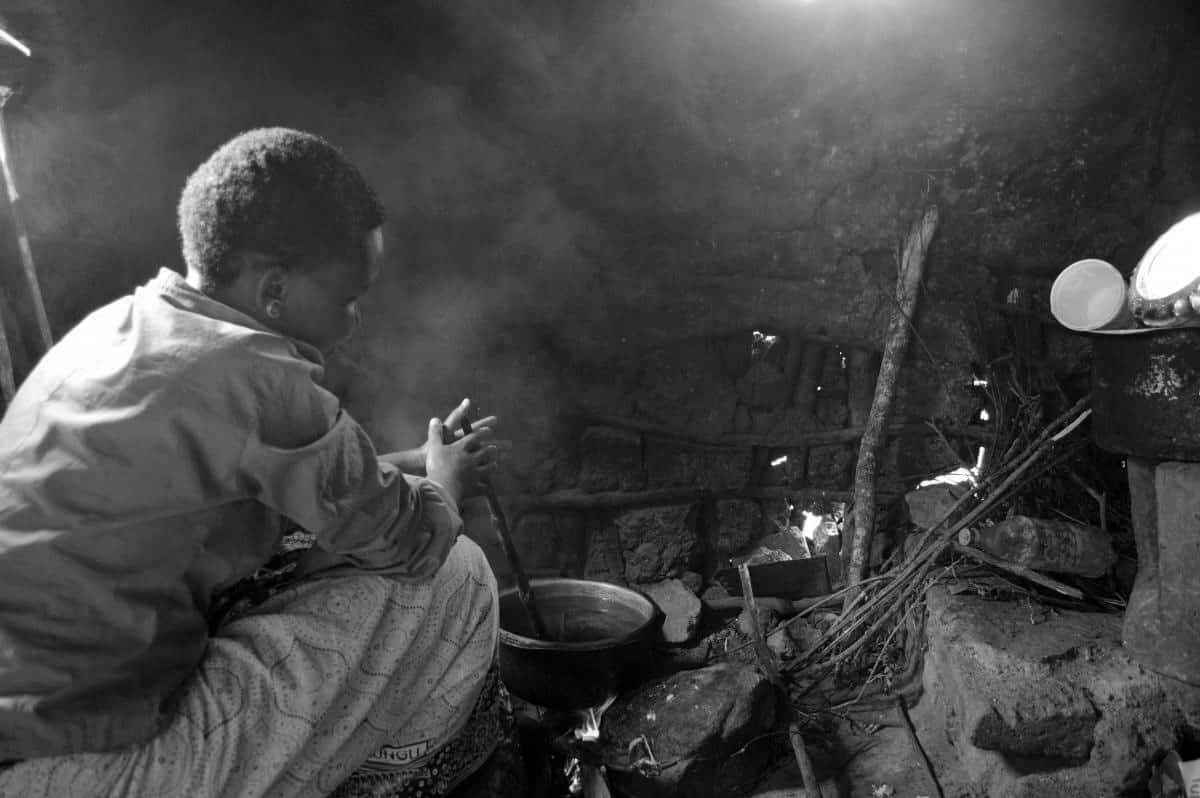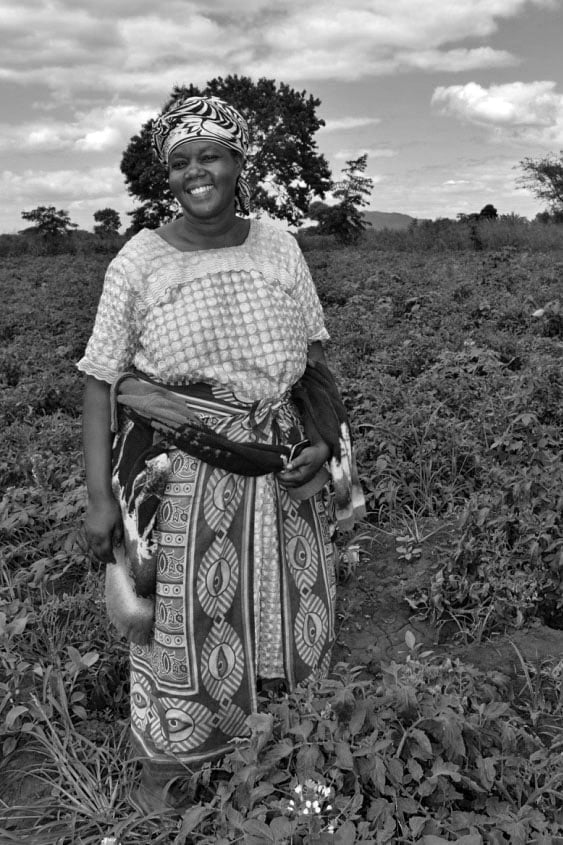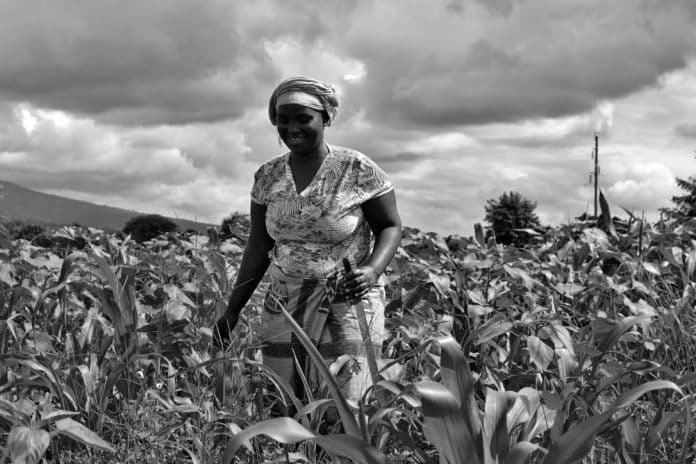Female Tanzania Farmers – Breadwinners of the Society
In Tanzania, women are the ones who feed their families. They work for many hours compared to men and are mainly responsible for cultivating food crops and cooking food, but laws regarding female Tanzania farmers owning land make it very hard for women to progress.
Esther Ramadan can’t slow down, for just some minutes. It is coming to noon on this Wednesday in June, being the main income-earner for the family, Esther has to tend to the crops in her tiny garden.
At the back of a single-floor building standing alone, whose lone occupant is a barbershop, by the side of a buzzing highway, next to the other side of a poorly-done barbed-wire fence, along a narrow walkway passing various portions of land, Ramadan is busy working in her part of the field.
People don’t call her Esther. She inherited her husband’s name till she produced their first son, they named him Musa. He is 14, and after his birth, Esther is now commonly known as Mama Musa. Being a mother is now her identity, and she works 7 long days every week for her children.
She used to weed her 3-acre plot of land in just a week, but now it takes her 6 weeks ever since her husband started working in the barbershop by the roadside, so she lacks any assistance.
“I will exchange some for money, and leave some for food,” she argued. Mama Musa spends the whole day removing weeds in her fields.
She uses two cows for pulling the plow, which she owns too. She has return customers from the area who know her and always come to buy her beans, however, most of her business includes anything people can buy from a stall by the roadside in front of the barbershop. She doesn’t use any form of transport to reach the market with her beans.
The story of Mama Musa is a common one for Tanzania’s village smallholders, here women Tanzania farmers do most of the work in the gardens and sell the yields to feed the family.
Pan-African Bean Research Alliance (PABRA)
The Pan-African Bean Research Alliance (PABRA) revealed that women are the ones who feed their families in sub-Saharan Africa.
PABRA receives funding from the Canadian government to research disease-resistant and climate-smart varieties of beans, focusing primarily on female Tanzania farmers.

Women usually do the cooking and farming, but never own land, besides change of land ownership is not easy. Men own most of the land and it is inherited by male heirs or their other relatives once they die. Buying new land is a tedious process. So, despite the women doing much of the work, they can only obtain land ownership if and after their husband passes on or their sons are too young to inherit, and even then the woman is just a caretaker.
Food and Agriculture Organization (FAO)
In North Tanzania, the Food and Agriculture Organization (FAO) revealed that 67 % of people who own land are men, with just 33 % being women. Additionally, much such as Mama Musa’s property, 93 % of plots don’t add up to five acres, more so plots bigger than that, women own just 11 %.
A 2014 report by the FAO revealed that Tanzania farmers who are women have few chances of owning land, cattle, use modern technologies, get loans, or other forms of financial services, and get education or extension advice. In some instances, women lack control regarding using their time.
In agriculture, women Tanzania farmers earn about three times less than men, according to the FAO, this means women are usually hired as labourers, depriving them of time and energy they could have used on their own farms.
Despite the plot that Mama Musa cultivates on being owned by her husband, she harvests the crops for home consumption and selling to earn income alone.
Grace Amanzi lost her husband and has been cultivating four different varieties of PABRA beans for three years now. The land she cultivates on was owned by her parents, till her husband took over its ownership after being married, and after he perished in an accident about 16 years ago, she inherited the cultivating duties so her son reaches the age of consent.
With three children aged 17, 23, and 24, Amanzi caters to all their education. Her husband passed on just after the birth of the youngest, from then onwards she has been cultivating as her only income to cater to the needs of her family.
She grows mainly maize and beans, like most Tanzania farmers who cultivate for home consumption in Tanzania, however in the few years she has been earning more money by selling PABRA beans, she can afford to diversify into growing eggplants and tomatoes.
“The best thing is it my children,” she argued. “I can take care of them.”

“The schools they go to also need the crops to prepare my children’s lunches, therefore I can provide that,” she went on saying.
Jean-Claude Rubyogo, a PABRA seed systems expert located in Arusha, Tanzania, remarked that gender is essential for bean research and that PABRA makes sure to put women at the forefront in each aspect of work it does in Tanzania.
Rubyogo remarked that East Africa holds the record for the largest per capita bean consumption across the world, so at each point of the value chain from seeds to eating, there are consequences on society.
He gave an example of various beans used for food but not for canning, and that women are more responsible for household chores and decisions than men, therefore PABRA considers the female preferences regarding texture, colour, taste, and shape, of beans in the process of creating new varieties.
Mama Musa may prefer beans likely to generate higher income, and Amanzi may prefer beans with more nutrients, or vice-versa.
Rubyogo went on to add that whereas men usually have an interest in generating an income for the family, women offer most of the labour, so if given chance to decide, men are likely to go for marketability than the availability of food, and women would select the opposite.
Usually, women Tanzania farmers who work in the garden also do most of the work of raising children, and having beans as a regular diet has other aspects that impact daily living.
The International Fund for Agricultural Development revealed that in Africa, women usually work an extra 12–13 hours weekly than men, however that work is taken to be “invisible,” and is not paid for. More so, the Evans School of Public Affairs at the University of Washington revealed that Tanzanian women usually work 12–16 hours daily, but men work half of that.
Usually, they never physically get the time to put money into new projects or get new equipment or systems.
Women Tanzania farmers hire little manpower compared to men because of limited resources, which encourages having a lot to do in limited time.
Cooking beans takes some hours, and most village women use a fire to cook.
Rubyogo revealed that PABRA has been giving women precooking beans to save time, but they cost a bit more
PABRA, which has operations in 30 countries across the world, also requests for the smallest number of representatives to be 30% women in its higher-levels of networking, from its networking team to region-based networks.
Farm Radio International
Farm Radio International is a not-for-profit from Canada that seeks to eliminate poverty and food insecurity through educational radio programs, works together with PABRA in Tanzania by utilizing its farming professionals on its airwaves.
Farm Radio, for its contribution, makes sure that 50 % of all programs are focused on women are especially smallholder farmers in Tanzania, and that 50 % of the questions that receive replies on air by professionals are submissions from women.
Mary Sengelela who works with Farm Radio in Arusha, said complications remain even during the implementation of such a quota. For example, she noted that most men masquerade as mothers or their wives to make inquiries on the radio program, instead of giving women a chance to participate themselves.
PABRA and Farm Radio both emphasize women Tanzania farmers’ needs in their programming, although socio-economic problems slow down progress.
Mama Musa argued that if she cultivates appropriately, she can harvest triple what she plants, this means if she plants beans worth 2 one-gallon cans, she will get a yield that fills 6 cans. However, she doesn’t plant appropriately. She doesn’t dig trenches to keep rainwater, cultivate in clear rows, or do crop rotation to maintain nutrients in the soil.
She neither uses PABRA inputs nor beans inputs.
She’s been cultivating from childhood, but some outreach workers have come to her, and she has been limited by the price of putting in place the products of those who have.
She is not the only one. In fact, she belongs to the majority.
Women in villages face constraining socio-cultural beliefs and tend to be less privileged compared to men regarding access to resources, assets, and services, such as healthcare, education, technology, loans, extension services, agricultural inputs, and markets, according to a 2014 report by FAO.
Despite progress being slow, the efforts of Farm Radio and PABRA are making an impact, including on an individual farm basis. Mama Musa might not cultivate enhanced bean varieties, moreover, she might not undertake appropriate agronomic practices, however, Amanzi does, and as a result, she has been able to care for her children and take them to school.
For more Agriculture in Tanzania articles click here!

































